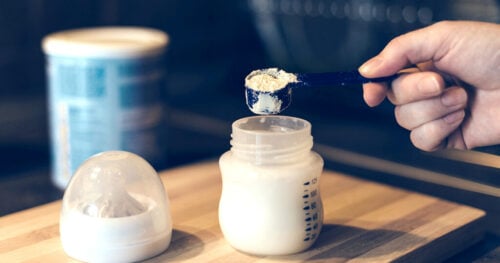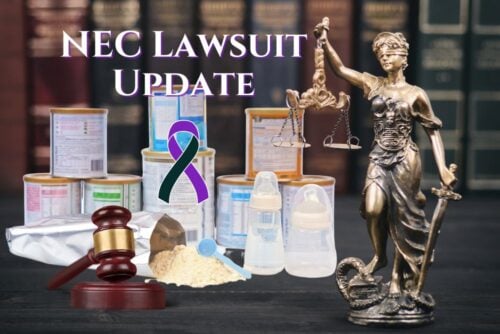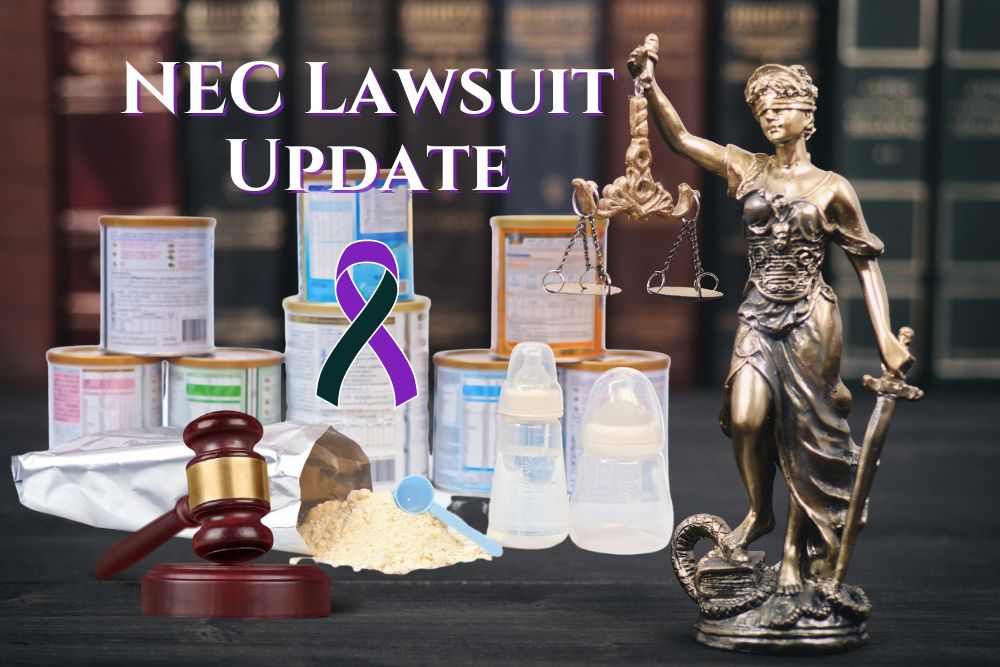
Introduction to NEC and Baby Formula Lawsuits
Necrotizing Enterocolitis (NEC) is a serious, sometimes life-threatening condition that affects thousands of premature infants each year. Characterized by inflammation and infection in the intestines, NEC can lead to devastating health complications, particularly in premature babies whose systems are still developing. Tragically, NEC is one of the most common gastrointestinal emergencies among preterm infants, and statistics suggest it affects up to 10% of all babies born prematurely in the United States.
But why is NEC now the focus of numerous lawsuits against baby formula manufacturers? The answer lies in growing evidence linking cow's milk-based formula products to an increased risk of NEC in preterm infants. Parents of affected infants are filing lawsuits, alleging that some formula brands have failed to adequately warn consumers of these risks, raising serious questions about corporate accountability and product safety.
This guide will explore NEC, the lawsuits against formula companies, and the legal protections available for affected families. If your child developed NEC after using a formula-based product, you may have rights under consumer protection laws, and there may be opportunities for compensation through class action lawsuits or individual claims. Is your family eligible to join this fight for accountability and justice? Read on to learn more.

Understanding NEC and Its Causes
Necrotizing Enterocolitis, or NEC, is a condition that causes inflammation and, in severe cases, infection in the intestines of infants. This can lead to serious, sometimes fatal, complications, especially for premature babies. Early signs of NEC include a swollen abdomen, difficulty feeding, vomiting, and unusual lethargy. Recognizing these symptoms quickly is crucial, as NEC can progress rapidly, often requiring immediate medical intervention.
Why are premature infants more at risk? Premature babies often have underdeveloped immune and digestive systems, making them more vulnerable to infections and digestive disorders. Babies born before 37 weeks are at a much higher risk of NEC, especially if they are fed formula made with cow's milk.
A growing body of research links cow's milk-based formulas to higher rates of NEC among premature infants. Some studies suggest that the proteins in cow's milk are harder for these vulnerable babies to digest, leading to an increased risk of inflammation and, ultimately, NEC. As a result, healthcare professionals and advocacy groups have begun advising parents of preterm infants to consider alternative feeding options.
For families affected by NEC, understanding the link between baby formula and this condition is the first step toward knowing their rights. Could your child's formula have contributed to their illness? Understanding the risk factors and causes of NEC can help in evaluating the legal paths available to pursue compensation and accountability.
Legal Basis for NEC Lawsuits
When it comes to NEC lawsuits, families are standing up against baby formula manufacturers, seeking justice for the harm caused to their children. These lawsuits primarily focus on product liability claims, allegations of failure to warn, and accusations of negligence against manufacturers. Each of these legal foundations aims to hold companies accountable for not sufficiently protecting consumers, especially the most vulnerable—our children.
Product liability claims assert that formula manufacturers have a responsibility to ensure safety for all users. This means ensuring that the products are free from unnecessary risks or, at the very least, that parents are fully informed of potential dangers. In cases of NEC, families argue that cow's milk-based formulas should have carried clear warnings about the risks for preterm infants, allowing parents to make informed choices.
Failure to warn claims suggest that, although manufacturers may have known about the risks of NEC associated with their formulas, they neglected to provide adequate warnings to consumers. By omitting these crucial warnings, companies potentially left families in the dark about the dangers associated with cow's milk-based formulas, especially in relation to NEC in premature babies.
Lastly, negligence claims target the lack of care exercised by formula companies in designing and marketing their products. This negligence may include not conducting sufficient safety testing or not updating formulas to better protect preterm infants from the risk of NEC.
If you are a parent considering an NEC lawsuit, understanding these legal claims can help you determine the best approach to holding manufacturers accountable. Could you be entitled to compensation for the challenges and suffering your family has faced? Knowing your rights is the first step in this journey toward justice.
Know Your Rights: Legal Protections for Families Affected by NEC
If your child has developed NEC after using cow's milk-based formula, you may be entitled to legal protections under several consumer and product liability laws. These laws are designed to safeguard families from harm caused by unsafe products, and they hold companies accountable for failing to protect their customers, especially when it comes to the safety of infants.
Consumer protection laws play a vital role here, giving parents the right to pursue claims against manufacturers if they believe that a product has caused harm. These laws emphasize that companies should prioritize consumer safety above profits and provide sufficient warnings about potential risks. When companies neglect this responsibility, families can seek recourse for the harm caused.
Product liability laws are another essential layer of protection. These laws allow families to hold manufacturers legally responsible if their products prove to be dangerous or defective. For parents of premature infants affected by NEC, this means that a lawsuit could potentially address the financial and emotional hardships they’ve endured as a result of using unsafe baby formula.
The statute of limitations is also critical to consider. While the timeframe for filing a lawsuit varies by state, most states impose a deadline on when you can file a claim. Understanding this timeframe is crucial so you don’t lose the chance to seek justice. Families impacted by NEC should consult with a legal expert to ensure they’re meeting these deadlines.
Are you and your family covered by these legal protections? By understanding your rights and the laws that apply to NEC cases, you can better navigate the path toward compensation and accountability.
Benefits of Joining a Class Action Lawsuit
If your family has been affected by NEC, joining a class action lawsuit can offer several distinct advantages over filing an individual claim. In a class action, multiple families with similar grievances unite to hold baby formula manufacturers accountable, creating a more powerful case and increasing the likelihood of favorable outcomes.
One significant benefit is the strength in numbers. When multiple families come together, the case against the manufacturer becomes more robust, potentially drawing more attention to the issue and encouraging swifter action. A collective lawsuit sends a strong message, underscoring the shared experiences and widespread harm caused by these products.
Shared legal costs are another advantage. In a class action lawsuit, costs are distributed among all participants, making it more affordable for each family to pursue justice. Legal expenses, including fees for expert witnesses and legal consultations, can add up quickly in individual cases. By joining a class action, families can manage these costs more effectively while still benefiting from quality legal representation.
Class actions also often lead to larger settlements. With more plaintiffs involved, manufacturers may be more inclined to negotiate a substantial settlement to resolve the case and avoid prolonged litigation. This means that families may receive a more significant compensation package than they might achieve alone.
Lastly, class actions offer a streamlined legal process, simplifying the complex steps of litigation for each participant. With a single legal team handling the proceedings, families can focus on healing while the attorneys work on their behalf.
If you’re considering a class action, weigh these benefits against the specifics of your case. Could a class action be the right path for your family to seek justice and compensation?
How to Claim Compensation through SettlementGuides.com
If you believe that your child’s NEC diagnosis is linked to cow's milk-based formula, filing a claim through SettlementGuides.com could be a straightforward way to seek compensation. This section provides a step-by-step overview of eligibility requirements, necessary documentation, and what to expect during the filing process.
To begin, check if you meet the eligibility criteria. Typically, families affected by NEC in premature infants due to the use of specific formula brands qualify for these claims. Confirming that your case aligns with the outlined requirements is the first step toward a successful claim.
Once eligibility is established, gather all required documentation. This often includes medical records confirming the NEC diagnosis, any hospital records showing treatment details, and receipts or records of the formula products used. Having organized documentation can strengthen your claim and expedite the process.
Filing a claim is straightforward with our step-by-step guide on SettlementGuides.com. First, complete the online intake form with essential details about your case. Once submitted, a legal expert from our team will review your information, and if eligible, they will guide you through the necessary legal paperwork and next steps to get your case underway.
The timeline for receiving compensation can vary, but many families start to see progress within several months, depending on the case specifics and whether it goes to trial. While some cases reach settlements quickly, others may take longer if they involve complex evidence or higher settlement amounts.
Are you ready to pursue compensation for your child’s NEC diagnosis? With a few steps, you can begin the process and work toward the support and justice your family deserves.

Frequently Asked Questions
Who qualifies to file an NEC baby formula lawsuit?
Parents or caregivers of premature babies who developed necrotizing enterocolitis (NEC) after consuming cow's milk-based baby formulas like Similac or Enfamil may qualify to file a lawsuit. Generally, the infant must have been born prematurely (before 37 weeks gestation), fed Similac or Enfamil formula, and subsequently diagnosed with NEC.
What compensation can be recovered in an NEC lawsuit?
Potential compensation may include:
- Medical expenses related to NEC treatment
- Pain and suffering damages
- Funeral expenses and wrongful death damages (in fatal cases)
- Punitive damages in some cases
Is there a deadline to file an NEC lawsuit?
Yes, statutes of limitations vary by state, typically ranging from 1-6 years. The deadline generally starts when the injury is discovered. Consulting a lawyer promptly is crucial to ensure your claim is filed within the allowable time frame.
What evidence is needed to support an NEC lawsuit?
Key evidence includes:
- Medical records documenting the NEC diagnosis
- Records showing the infant was fed Similac or Enfamil formula
- Timeline of when formula was given and when NEC symptoms appeared
How long do NEC lawsuits typically take to resolve?
Litigation timelines vary, but complex medical cases like NEC lawsuits often take several years.
Are there any notable verdicts or settlements so far?
Yes, recent cases have resulted in significant verdicts, with large awards to families whose infants developed NEC after consuming certain formulas.
How can a lawyer help with an NEC lawsuit?
An experienced attorney can:
- Evaluate if you have a valid claim
- Gather and review medical records
- Consult with medical experts
- File your lawsuit and manage all legal proceedings
- Negotiate for a fair settlement or, if needed, take your case to trial





